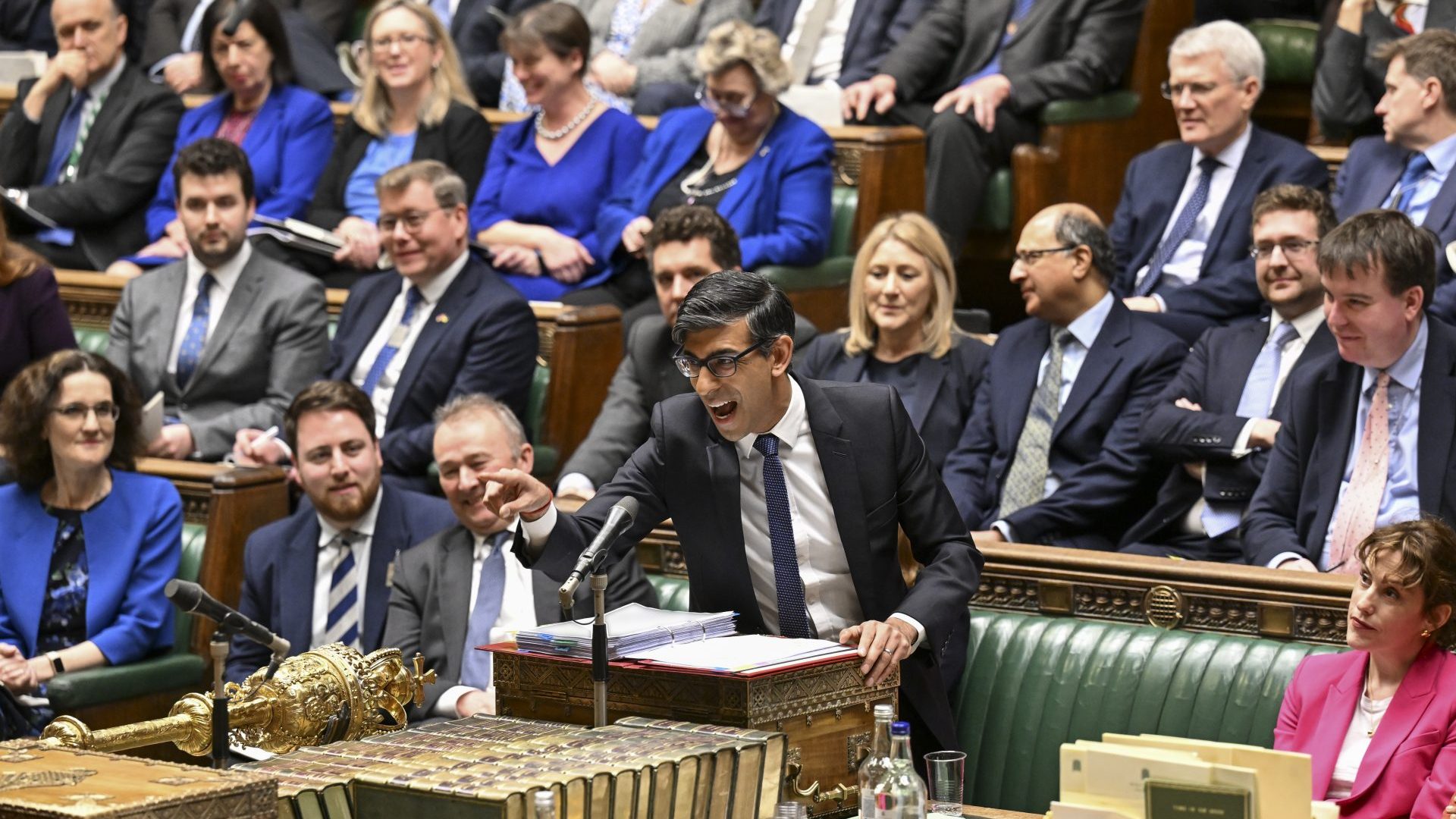A spate of opinion polls has led to fevered speculation that the Tories won’t just lose the next election, they will be wiped out. In one projection doing the rounds, the government loses 250 MPs and is left with fewer than 100 seats. The prime minister, Rishi Sunak, and chancellor, Jeremy Hunt, both lose their seats in this scenario.
The spectre of a “Canadian-style” wipeout is in the air – a reference to the plight of the Progressive Conservative Party of Canada (PCP), which went from being in government to losing all but two of its seats in the federal election of 1993 – including that of the prime minister, Kim Campbell.
Third in vote share at 16%, the CPC nonetheless came bottom of the five parties represented in parliament. New parties had emerged, challenging the PCP for core support, and the party would never recover. It later merged with its rival to form the Conservative Party of Canada. Sound familiar?
The comparison is interesting because it shows that there is indeed precedent in a Westminster system (which Canada operates) for a governing party to experience complete collapse. Canada also operates a majoritarian electoral system similar to the one which has long been the friend of the Conservatives in Britain, delivering majority governments on minority votes for a century.
Britain’s first-past-the-post voting system tends to heavily favour the winner. For instance, by dividing the number of votes cast with the number of seats won, it can be seen that in 2019 it took on average 38,000 votes to elect a Conservative MP, but almost 51,000 to elect a Labour MP – and a whopping 336,000 votes to elect a Liberal Democrat.
And the real outlier, the SNP, received one-third of the votes of the Liberal Democrats but secured almost four-and-a-half times the number of seats. Thanks to its geographic concentration and its position as the “winner” in Scotland, it took on average just 26,000 votes to return an SNP MP.
Worse than losing an election
So, if the polls are right, Labour can expect its vote share to be magnified in terms of seats won when the ballots are counted. First past the post is a winner-takes-all system where candidates do not have to secure 50% of the vote to become the MP. If Labour wins 45% of the national vote, as indicated in recent polls, that would likely translate to a considerable majority in the House of Commons. At the 2019 election, under Boris Johnson, the Tories won 43% of the vote but 56% of the seats. Remember, under the UK electoral system most people vote for losing candidates.
But the British electoral system has also saved losing parties in crisis. It bailed out Labour in 1983 when, divided and undisciplined, it was challenged by the breakaway SDP. The SDP/Liberal Alliance came within 2.2 percentage points of Labour’s vote share but won only 23 seats to Labour’s 209. This meant Labour remained as the official opposition and was able to regroup, eventually returning to government.
It is said that the Tory party exists in one of two states: complacency or panic. Complacent Conservatives resigned to defeat will be hoping the 1983 trick is repeated this time, cushioning their loss so that they survive to fight another day.
But those panicking will envisage a scenario where the electoral system works against them, maximising the anti-Tory vote, whether that be for Labour, the Lib Dems, Reform UK or any other challenger. This has certainly been reflected in recent byelections. And again, there is a precedent. John Major’s Conservatives were roundly beaten, by Tony Blair’s New Labour, when he went to the country in 1997. They survived in England but were completely wiped out in Scotland, despite securing half a million votes there. And that was one-third more than the Lib Dems, who returned ten MPs.
When the system turns against you
The Conservatives, of course, have been wedded to first past the post, even cynically changing the (proportional) supplementary vote electoral system ahead of this year’s mayoral elections. And so, it is ironic that the Conservatives only survived north of the border thanks to another part of the constitution – proportional representation operated in the Scottish parliament giving them a continued voice there after 1999. Perhaps as a marginalised force, they will come to see the benefits of a system where representation reflects votes.
There is, though, one place where the Conservatives will undoubtedly survive – for a time at least. With 278 peers, the Conservatives represent the largest group in the House of Lords and that will not change quickly. Boris Johnson, Liz Truss and Rishi Sunak have all, controversially, appointed a considerable number of new peers including party donors. For the next government to rebalance the upper house would require either flooding the chamber with even more members, bloating what is already the second biggest legislature in the world after the National People’s Congress of China, or serious reform.
Labour has so far backed away from the latter hinting only at an abolition of the remaining hereditary peers. It could be that this is where we will find Conservatives clinging to power, whether it’s worth much is another matter.
Historically, the British Conservatives are the most successful political force in the democratic world. They have dominated British politics and occupied Downing Street for most of the past century. The question now is whether a constitution that has facilitated this dominance for so long will this year turn against the Tories.
Stephen Barber, Professor of Global Affairs, University of East London
This article is republished from The Conversation under a Creative Commons license. Read the original article.










